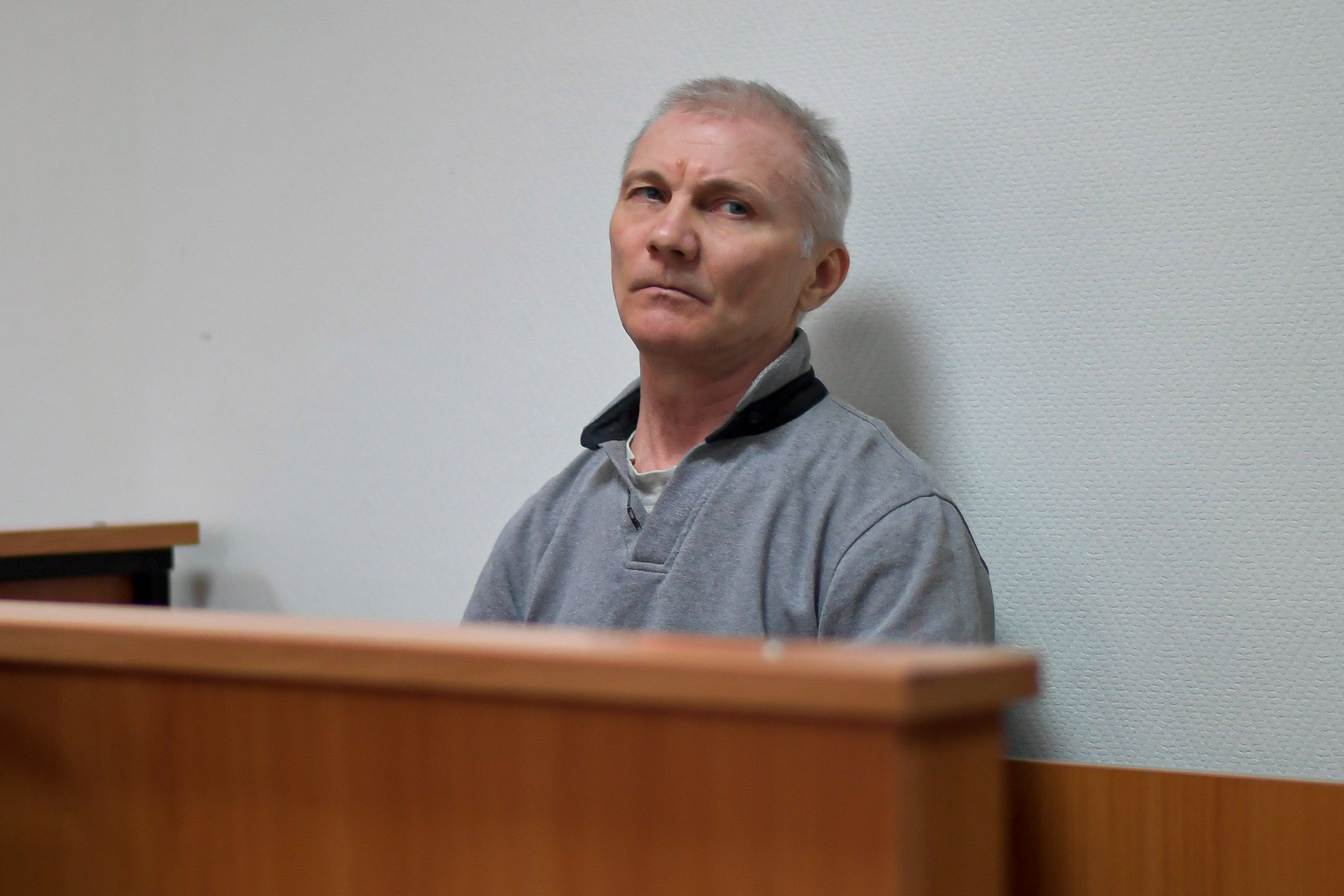‘Believe, love and hope’: Daughter’s letter to father fleeing Russian prison sentence
Alexei Moskalyov originally detained after his daughter Macha drew an anti-war picture at school

Your support helps us to tell the story
From reproductive rights to climate change to Big Tech, The Independent is on the ground when the story is developing. Whether it's investigating the financials of Elon Musk's pro-Trump PAC or producing our latest documentary, 'The A Word', which shines a light on the American women fighting for reproductive rights, we know how important it is to parse out the facts from the messaging.
At such a critical moment in US history, we need reporters on the ground. Your donation allows us to keep sending journalists to speak to both sides of the story.
The Independent is trusted by Americans across the entire political spectrum. And unlike many other quality news outlets, we choose not to lock Americans out of our reporting and analysis with paywalls. We believe quality journalism should be available to everyone, paid for by those who can afford it.
Your support makes all the difference.The 13-year-old daughter of a Russian who has gone on the run to avoid being sent to a penal colony following investigations sparked by an anti-war picture she drew at school has told him not to give up and urged him to "believe, love and hope".
"Hi Dad, I really ask you not to get sick and not to worry," the letter said. "Everything is fine with me, I love you very much and know that you're not guilty of anything. I am always on your side, and everything you do is right," she wrote.
Written neatly on lined paper, the letter ended with "I love you" in English, and the words "you are a hero" inside a heart.
The case of Alexei Moskalyov, who came under police investigation last year over the anti-war picture drawn by Masha, has resonated widely across Russia and internationally since the father was placed under house arrest this month and the teenager was taken to a children's home. Mr Moskalyov vanished from his home during the night on Tuesday, hours before being sentenced to two years for discrediting the Russian armed forces.
Mr Moskalyov's current whereabouts are unknown. A human rights lawyer, Dmitry Zakhvatov, said on Wednesday that Mr Moskalyov had been in touch with him and sent him a copy of a letter that Masha had written him from the children's home where she has been living since early March.
The powerful head of the Wagner mercenary group is the latest person to defend Mr Moskalyov. The surprise intervention by Yevgeny Prigozhin, founder of the Wagner private army that is fighting for Russia in Ukraine, called the verdict on Mr Moskalyov "unfair, especially in view of the fact that his daughter Masha will be forced to grow up in an orphanage".
Mr Prigozhin asked the prosecutor to review the verdict, and also requested that lawyers associated with Wagner be allowed to work with Moskalyov's defence.
Mr Moskalyov's lawyer Vladimir Biliyenko told Reuters he was in favour of both requests, even if he was unsure of Prigozhin's motives. "I'm ready to accept any help that will help my client," he said.
Responding to a reporter's question during a breifing, Kremlin spokesman Dmitry Peskov implied Mr Moskalyov was a bad father, lamenting what he called the "very deplorable situation with regard to the performance of parental duties". He declined to comment on Mr Prigozhin's words.
The prosecutor's office in Tula, south of Moscow, did not immediately respond to a request for comment on Prigozhin's request and on the investigation into Moskalyov's escape.
Later on Wednesday, in a short audio message laced with expletives, Mr Prigozhin angrily rejected the idea he was motivated by "political ambitions".
Mr Moskalyov, 54, came to the attention of the authorities last April after Masha, then 12, drew a picture at school showing Russian missiles raining down on a Ukrainian mother and child.
The head of the school called the police, who began examining Mr Moskalyov's online activity and fined him for comments critical of the Russian army. He was then investigated for a second time last December on suspicion of discrediting the armed forces, a crime under laws passed shortly after Russia invaded Ukraine last year.
Reuters
Join our commenting forum
Join thought-provoking conversations, follow other Independent readers and see their replies
Comments